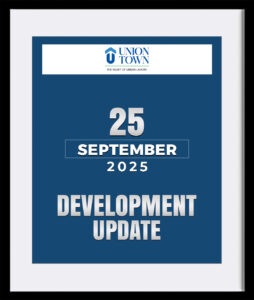Successful real estate developers know that a well-chosen site is a key to successful development. A developer who pays too much for a site will not make as much revenue. To achieve a successful outcome, the developer needs to have full knowledge of the property and its market value. As well as solid real estate negotiation tips for sellers. Property developers should complete their investigation on the property before entering into discussions with a seller and work to build flexible real estate negotiation tactics and solutions for dealing with the many responses that may come. In a property deal, aggressive developers do not always get the best result; skilled and sophisticated negotiators seek a delicate balance between the real estate negotiation sides to create a mutually beneficial end.
There are many strategies that novice and experienced business owners can use to advance their business, regardless of the market’s state. As a means of expanding your real estate business, you may wish to employ a few of these key strategies.
1. Define your target market:
This is probably the most effective method used by real estate developers to achieve success as real estate agents. There are many real estate brokers and companies who specialize in certain niche markets and develop expertise in those markets. Consequently, you will gain a better understanding of what drives the target market at present? What risk is associated? And most importantly, where it is likely to go in the short and long-run?
2. Expenditures for marketing:
It is also essential to establish a marketing budget and stick to it if you want to expand your real estate business. You can use your marketing dollars in many ways, including real estate websites, email marketing, social media marketing, and postal marketing. You should spend according to the type of audience you are targeting. For instance, if you wish to market your products to customers in the urban area, you may want to utilize internet marketing, while customers in rural areas may require a different marketing strategy.
3. Develop a website & social media:
It is imperative that you establish your presence on the internet via a professional website and dedicated social media accounts. Both are relatively inexpensive and can reach a large audience. You can advertise on social media sites such as Facebook, Twitter, and LinkedIn, as well as google and bing by purchasing ads.
4. Make referrals and spread the word:
Referrals from past clients are a vital part of the business model for most successful real estate agents. Customers refer business to their friends and family. When a friend, colleague, or relative refers a new customer to a real estate agent, the new customer feels more comfortable selecting that agent. Offer referral bonuses to people who bring in new customers to boost this strategy.
5. Provide a quick response:
Currently, we live in a rapidly changing world. If you do not respond to customer inquiries, you risk losing new customers. Make sure you are always able to answer a customer inquiry by email via your smartphone. It adds credibility and reputation for you to be prompt in responding. Business doesn’t allow you to delay following up the next day.
6. Create a newsletter:
Take your long-term success seriously. In that case, you may consider publishing a weekly or monthly newsletter with updates. Information about current mortgage rates, real estate developer concerns, property law, the benefits of homeownership, evaluating local markets, and so on. Such a newsletter would benefit current and prospective customers as it shows your commitment and knowledge.
7. Discuss the necessity of a real state agent:
The concept of mediation describes a customer’s view of whether they need a real estate agent or not. Customers with this type of purchasing behavior are targeted by direct marketing. By educating your customers through the website and social media you can reinforce the need for a real estate agent and lawyer.
8. Develop a successful plan:
Real estate agents and real estate developers both need an actionable business plan. With a real estate development business plan, you can plan expenses, contingencies, and other risks. Plan ahead to succeed. Such planning prevents people from falling into a vacuum. Hence, a business plan can help you plan your budget for real estate marketing strategies in the near future.
9. Enhance brand awareness:
Like other brands, real estate seeks to develop its own identity. You can use your company name or your own name. When creating your real estate sales strategy, bear this in mind. Real estate professionals frequently wonder how they can become successful business owners. The key is to plan ahead to build a name brand and use it to market the company for years to come.








